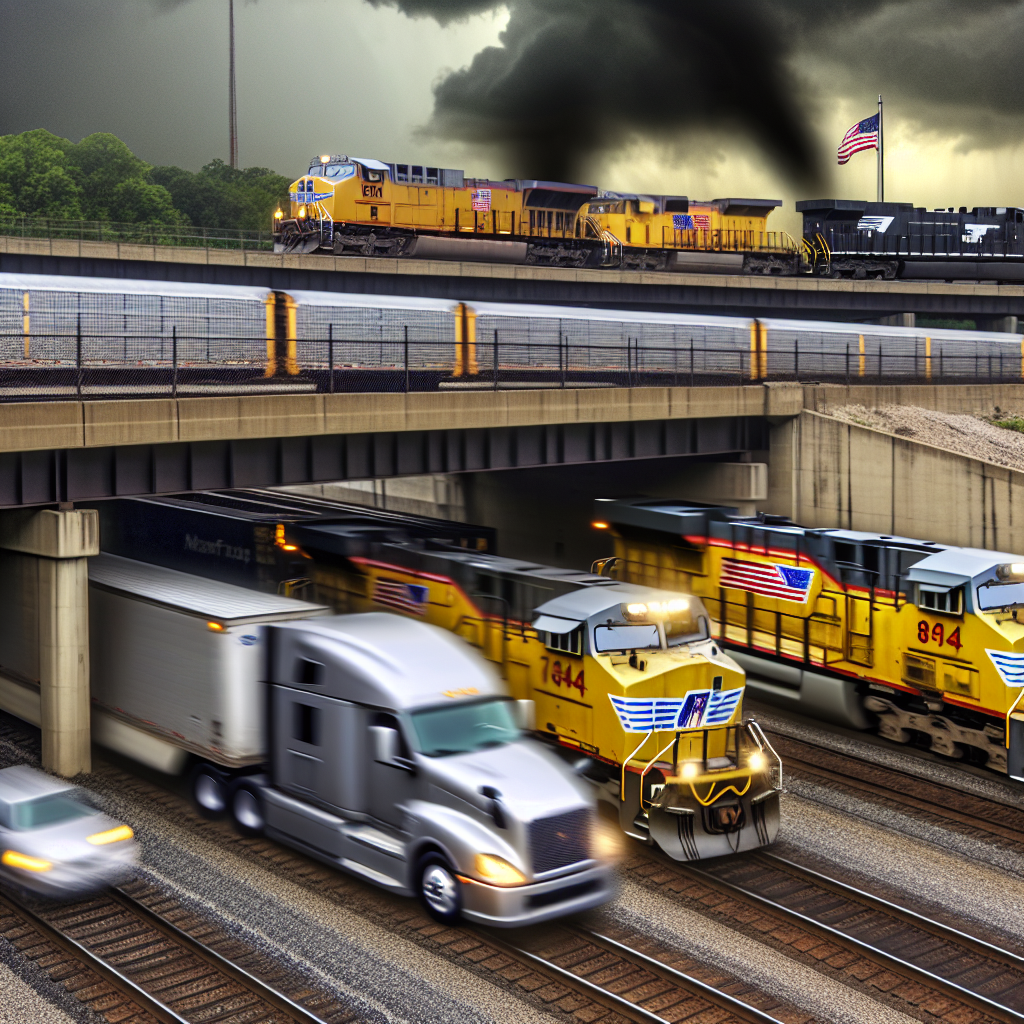Nine Republican attorneys general are urging federal rail regulators to scrutinize Union Pacific’s proposed $85 billion acquisition of Norfolk Southern, arguing the tie-up risks higher shipping costs, weaker service — and even national security consequences. In a letter to the Surface Transportation Board (STB), AGs from Florida, Iowa, Kansas, Mississippi, Montana, Ohio, North Dakota, South Dakota and Tennessee said the coast-to-coast railroad envisioned by the deal would concentrate power and “kneecap” U.S. manufacturers and agriculture. Their warning puts a political spotlight on a merger that could reorder freight flows across the country.
The companies, for their part, just cleared a key checkpoint: on Friday, November 14, shareholders of both Union Pacific and Norfolk Southern voted by roughly 99% to back the transaction. The railroads say they will soon file their formal application with the STB, kicking off a review that could run 12–18 months.
Why it matters for trucking: if regulators approve the first freight-only railroad spanning both coasts, single-line routings could cut handoffs at congestion-prone gateways — notably Chicago — compressing rail transit on some lanes and sharpening intermodal’s pitch to long-haul shippers. That would put pressure on truckload incumbents along corridors where rail can now offer faster, simpler service, while boosting demand for first/last-mile drayage and transload capacity around inland ramps. The AGs’ pushback, however, underscores that any near-term mode-shift bets should be hedged; approval is uncertain and conditions could reshape how the combined carrier competes.
Stakeholders are already mobilizing to shape the docket. A coalition including the Rail Passengers Association and other public-interest groups asked the STB on November 13 to ensure robust public participation given the unprecedented scale of the case — a signal that the record will be crowded, and timelines and conditions may be contested. For shippers and carriers, that translates to prolonged regulatory risk and potential tweaks to competitive remedies that could influence lanes, interchange rights and terminal access.
Union Pacific has framed the combination as pro-competitive, promising “seamless, single-line service” and faster, more reliable transcontinental options. Norfolk Southern likewise says benefits will reach customers and workers, with stronger highway competition. Those claims will be tested against the AGs’ concerns over concentration, pricing power and resilience in critical industries from chemicals to agriculture — concerns that directly affect truck-rail substitution decisions in bids ahead of 2026.
Near-term playbook for fleets and brokers: map exposure on lanes where a UP–NS through-service could truncate rail dwell (Upper Midwest–Southeast, Southern California–Southeast, Mid-South–Mid-Atlantic); stress-test pricing on long-haul truckload lanes that are vulnerable to intermodal undercutting; and explore partnerships at likely growth nodes for drayage and cross-dock activity. At the same time, treat timing and scope of any shift as contingent — the STB can impose conditions or require competitive safeguards that temper rail’s network advantages.
What’s next: the merger application is expected to land soon, followed by a procedural schedule and a public comment phase. Watch for how the Board frames competitive issues around Chicago interchanges and whether it floats conditions to protect shippers and connecting carriers — outcomes that will shape how much freight, if any, migrates off long-haul trucks and onto rail in the medium term.
Sources: FreightWaves, Reuters, Union Pacific, Norfolk Southern, Rail Passengers Association, Trains.com
This article was prepared exclusively for TruckStopInsider.com. Republishing is permitted only with proper credit and a link back to the original source.





